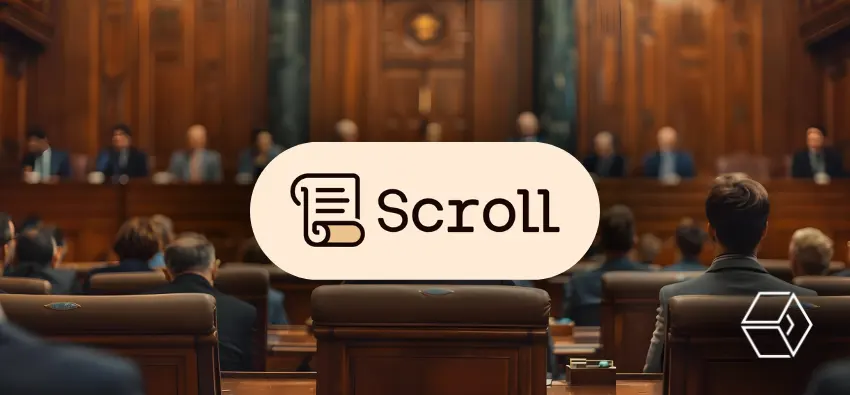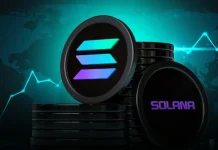
- Scroll DAO paused governance after leadership resignations created confusion about live proposals.
- Delegates confirmed governance is being “redesigned,” though no timeline or roadmap has been shared.
- $SCR token holders face uncertainty over decentralization and decision-making power.
The Scroll decentralized autonomous organization (DAO) has paused its governance process following leadership resignations and uncertainty over which proposals remain valid. Delegates and $SCR token holders are now waiting for clarity as Scroll’s team confirmed it is working on a redesigned governance system.
The move raises questions about decentralization and accountability, leaving many wondering how the community’s role will evolve.
Scroll DAO Pause Leaves Uncertainty Around Ongoing Proposals and Decentralization Goals
During a Wednesday delegate call, Scroll DAO contributors admitted governance activity had been paused after Eugene, a leading figure in the DAO, stepped down. Without clear leadership, delegates acknowledged they could not confirm which proposals were live or previously approved. Measures left in limbo include a treasury management request, formation of a governance council, and recognition of contributors for the May–December 2025 cycle.
Scroll contributor Raza clarified that the governance process was only “paused” rather than permanently ended, a message meant to calm concerns. Meanwhile, Scroll co-founder Haichen Shen told delegates that the team was in the process of redesigning governance but gave no clear timeline. Delegates also noted the repeated use of the word “experiment,” hinting at the possibility that governance could return in a different, potentially more centralized form.
This uncertainty has unsettled some in the community. For token holders, the pause risks undermining the promise of progressive decentralization, which was a key part of Scroll’s vision.
$SCR Token Holders Face Questions About Power and Decision-making in Future Governance
Scroll DAO was originally designed to empower $SCR holders to vote on critical issues ranging from treasury allocations to funding programs and social ratifications. Delegates could act on behalf of those who preferred not to track every vote, mirroring representation models in traditional governance systems. By halting activity, Scroll has temporarily suspended that democratic process, leaving token holders with little clarity on how much influence they will retain once governance resumes.
The uncertainty comes at a time when Scroll’s $SCR token is attempting to recover from a steep decline. While the token has risen 3% in the past 24 hours in line with broader market sentiment, it remains down 75% from its December peak. Price action, however, is only one part of the story. For many investors and community members, the larger concern is whether the DAO will return in a form that respects token holder participation or shift toward a more centralized model controlled by core contributors.
Scroll’s Redesign Strategy Will Shape its Future Role in Ethereum Scaling
Scroll DAO, founded in 2021 by Ye Zhang, Sandy Peng, and Haichen Shen, has built its reputation as a leading Ethereum scaling project through zero-knowledge rollup technology. By processing transactions off-chain while preserving Ethereum’s trust guarantees, Scroll has been positioned as a serious player in the race to expand blockchain scalability. The DAO, created alongside its native $SCR token, was meant to ensure that governance decisions matched the project’s decentralization ethos.
The pause in governance reflects a wider challenge across blockchain projects: balancing innovation with community-driven oversight. While DAOs are built on the principle of distributed decision-making, they remain vulnerable to leadership disputes, unclear processes, and coordination difficulties. For Scroll DAO, the decision to halt activity suggests a recognition that its system may not have been prepared to handle complex treasury and governance issues at scale.
For now, Scroll DAO leadership has asked the community for patience, promising to “put everything in order” before setting out the next steps. Delegates, token holders, and industry watchers will be paying close attention to whether the redesigned model restores confidence in Scroll’s governance—or redefines it in a way that concentrates power back with the core team.



